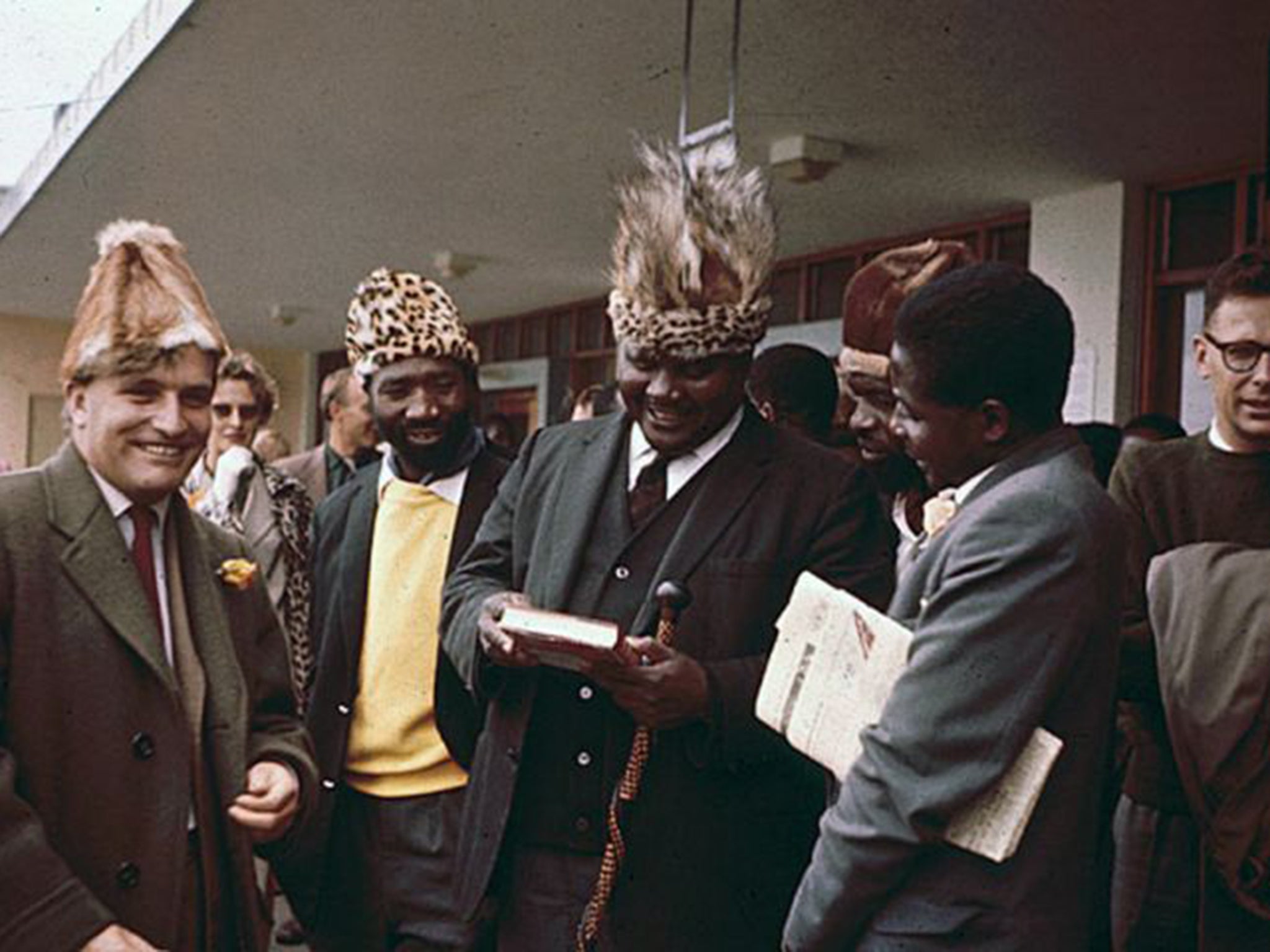Professor Terence Ranger: Historian and activist whose vigorous campaign against white rule in Southern Rhodesia led to his deportation
Although he was only in Southern Rhodesia from 1957 until 1963, Ranger managed to get up the collective nose of most whites

At a dinner party in Salisbury, now Harare, in the late 1950s when white rule in Rhodesia was at its height, Terence Ranger told the left-wing academic John Reed that he wished he'd been born black. "Terry," Reed wrote years later, "began a debate on what it means to be African by saying how much he wishes he was black because for the black man everything is still open, everything is still to do – a new state and a new culture to build up."
In early 1968, soon after the publication of his greatest work, Revolt in Southern Rhodesia, 1896-97 (Heinemann, 1967) Ranger sat in a lecture room at Dar es Salaam. The Black Panther leader Stokely Carmichael was thumping the rostrum telling black students they must learn to hate whites. "A history student sitting next to me was shouting, 'I do hate the whites. I do hate the whites'," he recalled, "pausing to whisper to me, 'I don't mean you, Professor Ranger.'"
He was always the exception. At Highgate School, exceptionally mediocre. At Oxford University, exceptionally curious about little-known incidents in English and Irish history. In Southern Rhodesia, exceptionally brave as well as exceptionally provocative.
Although he was only in Southern Rhodesia from 1957 until 1963, he managed to get up the collective nose of most whites. He was hurled fully clothed into a swimming pool after telling a group of rugger-bugger Europeans that blacks should be allowed to swim in it. Undaunted, he launched an anti-colour bar march through Salisbury. Lawrence Vambe, the Zimbabwean author and historian, said, "For a white person, and an immigrant at that, to act in this fashion required an uncommon amount of moral, physical courage. In the circumstances, the apostles of segregation were horrified by Ranger's behaviour and prevailed upon the government to make him pack up and go."
He and his wife Shelagh went to Tanzania to work at the University of Dar es Salaam, in those days a hotbed of expatriate Marxists. It was there that Ranger started work on his masterpiece, Revolt in Southern Rhodesia 1896-97. It showed how Africans lived before the arrival of Cecil Rhodes and his Pioneer Column in 1890 and attempted to explain why the country's two main tribes, the Shona and Matabele, rose up against the European settlers.
From Tanzania he went to the University of California for five years and then to Manchester University, where he stayed for 13 years before taking up the chair for Race Relations at Oxford. He left England again in 1968 to return to Africa where he worked on a four-year contract at the University of Zimbabwe, "a grandfather figure for research students," he quipped.
He was the son of middle-class parents whose income was precarious; his father was a reckless gambler: "The family's moral politics were contained within a bourgeois lifestyle which varied in elaboration according to my father's prosperity. The result of all this was that I grew up with a horror of gambling." On schooldays, he said, "Except for literature and history I might as well not have had a brain at all."
After National Service he went to Oxford, where the core of the history honours syllabus was a continuous knowledge of English history. While there he made an important contact, Hugh Trevor Roper, who later became notorious for dismissing the possibility of any meaningful African history whatsoever.
Uncertain what to do next, Ranger applied for a lectureship at the University College of Rhodesia and Nyasaland. He arrived in Salisbury in 1957 with the scantiest understanding of Africa, having read only Trevor Huddleston's Naught for Your Comfort and John Gunther's Inside Africa. In 1957 Southern Rhodesia was key to the success or failure of the British-designed Central African Federation (CAF) that joined two Rhodesias (now Zimbabwe and Zambia) to Nyasaland (Malawi). For whites it was the last throw of the dice.
But instead of joining the European community and absorbing their prejudices, Ranger and Shelagh linked arms with a cross-section of freedom fighters, men such as James Chikerema, George Nyandoro, Joshua Nkomo, Ndabaningi Sithole, Maurice Nyagumbo, Stanlake and Sketchley Samkange, Michael Mawema, Enoch Dumbutshena, and the cleverest and most ruthless of them all, Robert Mugabe.
Ranger wrote articles which explained the African nationalist position on almost everything. He believed that an end to white rule would see an end to corruption and nepotism. Most whites dismissed him as a liberal crank, one of Moscow's "useful idiots".
When he was deported a crowd of black nationalists surrounded him at the airport and waved him off. The picture of him and them that day was one of his proudest possessions and is the front cover of his autobiography, Writing Revolt – An Engagement with African Nationalism 1957-67 (James Currey, 2013).
During his long and fascinating life, the last years plagued by diabetes and to some degree memory loss, Ranger published and edited dozens of books and wrote hundreds of articles and book chapters. The publication that brought him his greatest fame in Britain and in non-Africanist circles was The Invention of Tradition (1983), which he co-edited with Eric Hobsbawm. A memorial service will be held at Oxford later this year.
TREVOR GRUNDY
Terence Ranger, historian and activist: born 29 November 1929; married Shelagh (adopted daughters); died Oxford 2 January 2015.
Join our commenting forum
Join thought-provoking conversations, follow other Independent readers and see their replies
Comments